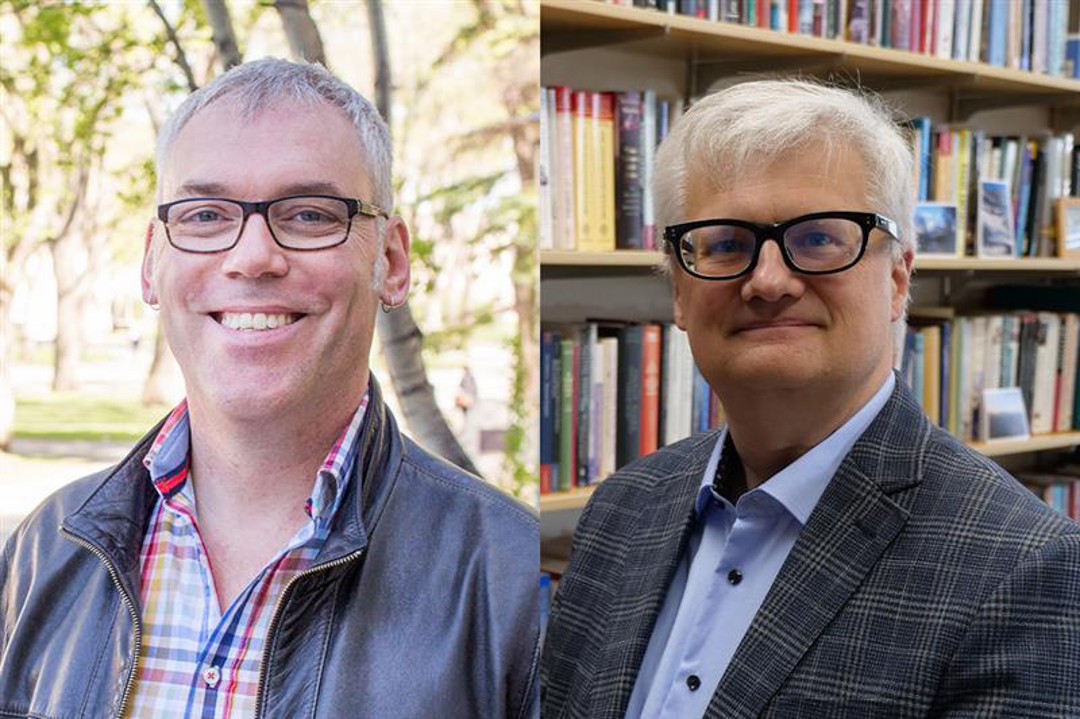
USask scholars receive prestigious Fulbright Canada research placements
Two University of Saskatchewan (USask) researchers have received special positions from an organization dedicated to fostering academic connections between Canada and the United States.
By Matt Olson, Research Profile and ImpactFulbright Canada is an organization dedicated to operating the “merit-based” Fulbright program in Canada. Designed to create “exchange opportunities for exceptional students, scholars and researchers in the two countries” of Canada and the United States, these opportunities will allow USask scholars to shine on an international stage and exchange important knowledge for future research.
Dr. Clinton Westman
Dr. Clinton Westman (PhD), a professor in USask’s Department of Anthropology in the College of Arts and Science, was named a Fulbright Canada Special Foundation Fellow. Westman’s Social Sciences and Humanities Research Council (SSHRC)-funded research focuses on natural resource development and its impact on Indigenous communities. Westman’s most current projects are exploring how technological development for oil extraction in Alberta’s oil sands affects the Indigenous communities in the area.
The Fulbright Canada fellowship will take Westman to the Canadian Studies Centre at the University of Washington, where he hopes to connect with more researchers in the field and develop a better framework for understanding energy resource development with local communities.
“It’s a prestigious international award, and it will give me a chance to meet new colleagues, speak to researchers in many fields, and meet ordinary people in the United States with an interest in the topic,” he said.
From pipelines to power stations, increasing Canada’s energy infrastructure has been a crucial topic of discussion and research in recent years. Westman said it’s more important than ever to understand the ramifications of evolving energy infrastructure and its effects on the environment and local populations.
Because of the important connection in energy between Canada and the United States, Westman said the Fulbright fellowship is the perfect way to explore the policy implications of continuing oil and gas development for Indigenous communities.
“We are in this new discourse around building things in Canada, or trying to be as strategic as possible about exports and infrastructure,” he said. “It’s not only energy, but new types of climate change infrastructure, carbon capture and sequestration proposals being developed ... Those are going to have some on-the-ground social and environmental impacts of their own.”
Westman expressed his gratitude to Fulbright Canada for the fellowship and said it shows the importance of understanding the connections between energy development in the oil sands and the Indigenous communities living in the area.
As conversation continues both on the environmental ramifications of continued fossil fuel extraction as well as the potential importance of additional oil and gas pipelines, Westman’s research will provide valuable context connecting policymaker decisions with people who may be directly affected by ongoing development.
“(The fellowship) is an opportunity to promote my work and talk about things from a Canadian perspective in the United States,” he said. “How are the politics of energy and resource extraction in Canada mapping onto similar processes in the US?”
Dr. Matthew Neufeld
Dr. Matthew Neufeld (PhD), a professor in USask’s Department of History in the College of Arts and Science, will be travelling to a prestigious university in the United States to pursue his research into military history.
Neufeld holds the Fulbright Canada Research Chair in Humanities and Social Sciences. His research into the treatment of prisoners of war in England in the late 17th and early 18th centuries has previously received support from SSHRC and the Canadian Department of National Defence and will now take him to The Citadel Military College of South Carolina.
“I think this is a really good fit. The Citadel is one of a handful of military colleges in the U.S., and to be able pursue research and also do some teaching is very exciting,” Neufeld said.
The Citadel is a traditional military college, and Neufeld said having access to the rich history and military-connected researchers and officials will be invaluable to pursuing his research.
As Neufeld puts it, the idea of “prisoners of war” is relatively new in the history of war, and it’s important to understand how our ideas of proper conduct and what is right or wrong conduct in conflict have evolved through the centuries.
“It reminds us that some of the ways of acting and behaving today that we take for granted, and we take to be positive, were not always self-evidently thought to be good,” he said.
Neufeld said militaries are institutions that take history very seriously, and that he was eager to work with people at The Citadel who promote the importance of military history. He called receiving the Fulbright Canada research chair position an affirmation that there is an audience for this kind of historical research, and that it’s compelling for people and military organizations today.
“Getting this placement suggests that my research on prisoners of war is of interest not only to the Canadian forces, but also to the U.S.,” Neufeld said. “It’s an opportunity to increase the size of my intellectual community ... It’s very rewarding.”

